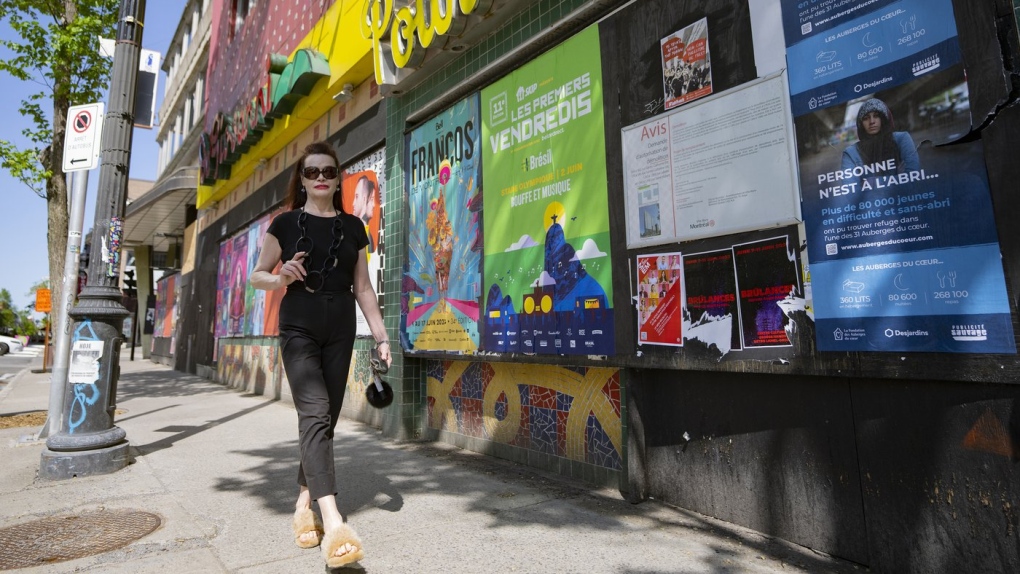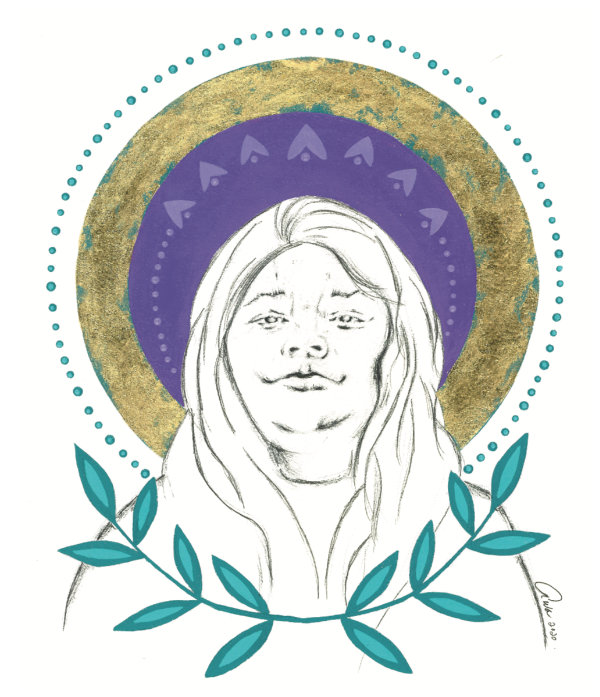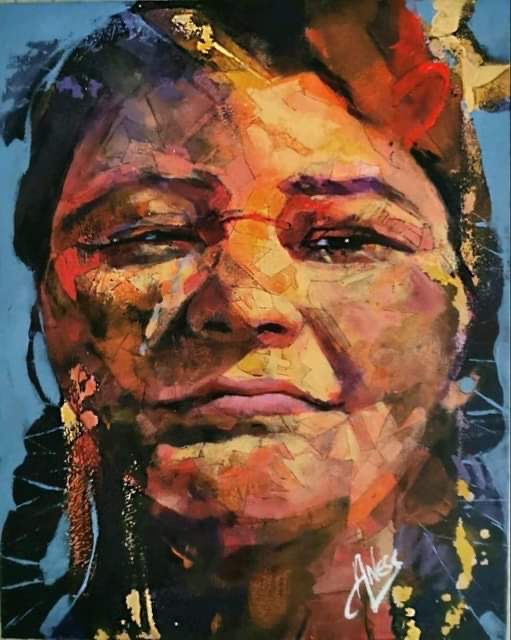
Carla White outside her apartment building
“And there went out a champion out of the camp of the Philistines, named Goliath, of Gath, whose height was six cubits and a span. And he had a helmet of brass upon his head, and he was armed with a coat of mail; and the weight of the coat was five thousand shekels of brass. And he had greaves of brass upon his legs, and a target of brass between his shoulders. And the staff of his spear was like a weaver’s beam; and his spear’s head weighed six hundred shekels of iron: and one bearing a shield went before him.” King James Bible
According to contemporary scholars, it was not David who killed the “champion” Goliath but rather Elhanan, son of Jair. Later, the story was revised by “supporters of the Davidic dynasty.” But what really matters, to these scholars, is the detailed representation of Goliath’s armor. In Montreal right now, a single tenant, Carla White, is resisting attempts by a major developer, Mondev, and she, like David or Elhanan, is undeterred by flashy armor and massive size. By accurately assessing the housing situation and her own position, Carla White has held up a luxury condo development for three years. Here’s her story.
After a series of eviction, Carla White finally found a place she could afford. That was ten years ago. The apartment is one room, has no working stove, and mostly filled with a bed and a small desk, and loads of plants. But, and importantly, Carla White pays $400, Canadian, a month. By law, the rent can’t be raised, and so Carla White has a secure and stable place, however diminutive, in which to live. Or she had one, until Mondev showed up, a few years ago. Mondev wants to demolish the building and build 176 luxury condos. They made offers to other tenants, who accepted. Others simply moved. But Carla White looked at the new skyscrapers in her neighborhood, looked at the apartment listings as well, and asked, “I look out there and say, where am I going now?” Rather than succumb to the inevitability of nowhere-to-go, Carla White stood her ground and entered into negotiations.
According to Mondev, they have made offers, which they describe as more than generous, for the past three years. The last offer was $20,000, Canadian. Mondev is portraying this as a more than reasonable offer, one that would ensure housing for Carla White for some time to come. Carla White responded, “How far will $20,000 go (at) $1,600 a month? I will be evicted within a year. I will be out on the roads.” Carla White’s attorney, Manuel Johnson, added: “She’s not trying to save the building. She knows it needs to be renovated. She just wants somewhere safe and affordable to live …. Whatever reasonable settlement Ms White needs for housing stability in no way will endanger the financial viability of their project. They don’t have any cash-flow problems, they’re going to be making millions of dollars on this development.” In other words, their armor is coated with mail.
Canada is in the throes of an affordable housing crisis, as it is in the midst of an eviction boom. British Columbia leads the race to the bottom, while Quebec, led by Montreal, has seen an explosion of `renovictions’. In the United States, starting in the late 1940s, blight and `urban renewal’ became the excuse to displace entire working-class communities of color. Contemporary Canada’s equivalent to `blight’ is `renovation’. Across Canada, tenants are forming tenant unions and engaging in rent strikes. As corporate landlords consume increasing portions of urban residential space and push for higher and higher rent increases, the number of rent strikes are expected to rise. From organized collective action to organized individual actions, everyone is asking the question Carla White is asking, “I look out there and say, where am I going now?”
(By Dan Moshenberg)
(Photo Credit: CTV Montreal News / La Presse Canadienne / Christinne Muschi)

